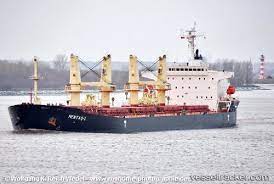In a recent incident in the Red Sea, a Greek-owned ship came under fire from Houthi militias, highlighting the ongoing risks faced by commercial shipping in this region. The vessel was carrying a cargo of sugar and was en route to the city of Aden when it was mistakenly targeted in a missile strike.
The Houthi militias claimed responsibility for the attack, stating that they had mistaken the ship for a military vessel. This incident is a reminder of the volatile situation in the region, where various armed groups are engaged in a complex conflict. Shipping companies operating in these waters need to be aware of the potential risks and take necessary precautions to protect their assets and personnel.
Drone and missile strikes have become a common tactic used by Houthi militias in their fight against the Yemeni government and its backers. These attacks have targeted both military and civilian infrastructure, including airports and seaports. Ships passing through this area must be prepared for the possibility of being caught in the crossfire of these ongoing conflicts.
Maritime security in the Red Sea has been a concern for several years, with incidents of piracy and attacks on ships occurring on a regular basis. In response to these threats, several naval missions have been deployed to protect commercial shipping and maintain safety in the region. However, the recent incident highlights the challenges faced by these missions in patrolling such a vast area.
The targeting of a commercial vessel in this missile strike also raises concerns about the impact on global trade and shipping flow. If shipping companies perceive the risks in the Red Sea to be too high, they may opt to reroute their vessels through alternative routes, which could lead to increased costs and disruptions to supply chains.
Ultimately, incidents like this serve as a stark rmCommercial shipping companies must work closely with naval forces and international authorities to ensure the safety of their cargo, crew, and vessels in high-risk regions such as the Red Sea.


